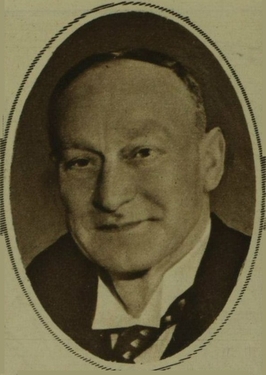Related Research Articles
The 1917 Rossendale by-election was a parliamentary by-election held for the British House of Commons constituency of Rossendale on 13 February 1917.
Robert Strother Stewart was an English lawyer, colonial judge and Liberal Party politician.
The 1921 Bedford by-election was a parliamentary by-election held for the House of Commons constituency of Bedford on 23 April 1921.
The 1918 South Shields by-election was a parliamentary by-election held for the British House of Commons constituency of South Shields on 28 October 1918.

The 1918 Finsbury East by-election was a parliamentary by-election held for the House of Commons constituency of East Finsbury in north London on 16 July 1918.

Maurice Alexander, was a Canadian barrister and soldier who later moved to England and had careers in the Diplomatic Service, English law and politics.
The January 1918 Prestwich by-election was a by-election held on 31 January 1918 for the British House of Commons constituency of Prestwich in Lancashire.
The 1918 Wansbeck by-election was a parliamentary by-election held for the House of Commons constituency of Wansbeck in Northumberland on 28 May 1918.

Sir John Bertrand Watson was an English lawyer, Chief Metropolitan Magistrate and Liberal Party politician.
The 1962 Stockton-on-Tees by-election was a parliamentary by-election held for the House of Commons constituency of Stockton-on-Tees in County Durham on 5 April 1962. It was the by-election at which Bill Rodgers, a future Cabinet minister and member of the "Gang of Four" of senior Labour politicians who defected to form the SDP, entered Parliament. Rodgers subsequently helped to lead the SDP into the merger that formed the Liberal Democrats, and later served as that party's leader in the House of Lords. In the circumstances it is not without irony that Rodgers remembers future Liberal leader David Steel, then not yet a Member of Parliament (MP), loudly booing the result of the election at Stockton from the floor of the count.
The 1916 South Shields by-election was a parliamentary by-election held for the House of Commons constituency of South Shields on 18 March 1916.

The 1918 Keighley by-election was a parliamentary by-election held for the House of Commons constituency of Keighley in the West Riding of Yorkshire on 26 April 1918.
The 1917 Spalding by-election was a parliamentary by-election held for the House of Commons constituency of Spalding in Lincolnshire on 25 October 1917.
The 1917 Islington East by-election was a parliamentary by-election for the British House of Commons constituency of Islington East held on 23 October 1917.
The 1917 South Monmouthshire by-election was a by-election held on Thursday 12 July 1917 for the British House of Commons constituency of the Southern Division of Monmouthshire in South Wales.
The 1917 Edinburgh South by-election was a parliamentary by-election held for the House of Commons constituency of Edinburgh South in Scotland on 12 May 1917.
The 1917 Inverness-shire by-election was a parliamentary by-election held for the House of Commons constituency of Inverness-shire in the Scottish Highlands on 2 January 1917.
The 1917 Aberdeen South by-election was a parliamentary by-election for the House of Commons constituency of Aberdeen South comprising the local government wards in the southern part of the city of Aberdeen. The by-election took place on 3 April 1917.
The 1916 Colne Valley by-election was a parliamentary by-election held on 25 August 1916 for the House of Commons constituency of Colne Valley, in the West Riding of Yorkshire.